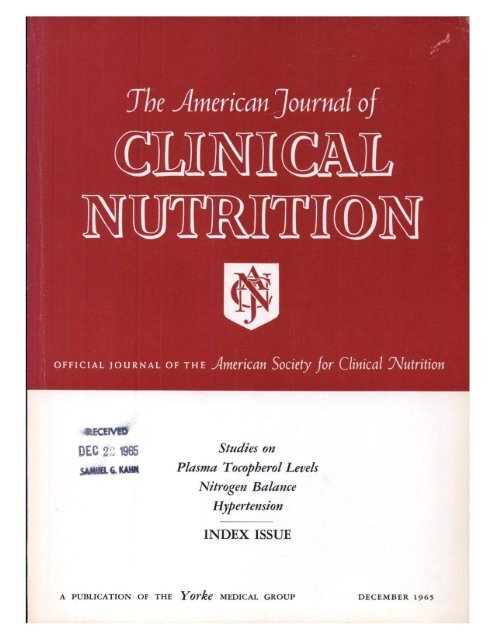高蛋白摄入的危害:推测、假设、声称和假定,但证明了吗?
IF 6.5
1区 医学
Q1 NUTRITION & DIETETICS
引用次数: 0
摘要
高蛋白饮食和蛋白质补充食品和饮料在成年人中越来越受欢迎,因为它们对食欲、能量摄入、体重和身体成分都有潜在的好处,人们提出了关于目前膳食中蛋白质摄入量是否过低的问题。与此同时,60多年来,高蛋白饮食对健康的担忧在文献中一直很普遍。然而,高蛋白饮食危害的推测,仍然普遍存在于非专业人士,有时,学术文献往往没有强有力的科学证据,或者实际上可能在一定程度上与科学证据相矛盾。在这篇观点文章中,我们讨论了学术和非专业出版物中引用的几种假定危害,并调查了支持或反驳这些断言危害的证据的强度。我们强调了与实验设计和结果解释有关的谨慎领域,并提出了有助于更好地确定与高饮食蛋白质摄入相关的潜在风险的研究领域。本文章由计算机程序翻译,如有差异,请以英文原文为准。
The harms of high protein intake: conjectured, postulated, claimed, and presumed, but shown?
High-protein (HP) diets and protein-supplemented foods and beverages have become increasingly popular in adults due to potential benefits relating to appetite, energy intake, body weight, and body composition, and questions have been posed regarding whether current dietary recommendations for protein are too low. At the same time, health concerns relating to high-protein diets have been widespread in the literature for >60 y. However, the conjectured harms of HP diets, which remain prevalent in the lay and sometimes academic literature, are often without strong scientific evidence or may actually be contradicted to a reasonable degree of certainty by scientific evidence. In this paper, we discuss several of the postulated harms cited in academic and lay publications and investigate the strength of evidence to support or refute these asserted harms. We highlight areas of caution relating to experimental design and interpretation of results and propose areas of research that would be helpful to better determine the potential risks associated with high dietary protein intake.
求助全文
通过发布文献求助,成功后即可免费获取论文全文。
去求助
来源期刊
CiteScore
12.40
自引率
4.20%
发文量
332
审稿时长
38 days
期刊介绍:
American Journal of Clinical Nutrition is recognized as the most highly rated peer-reviewed, primary research journal in nutrition and dietetics.It focuses on publishing the latest research on various topics in nutrition, including but not limited to obesity, vitamins and minerals, nutrition and disease, and energy metabolism.
Purpose:
The purpose of AJCN is to:
Publish original research studies relevant to human and clinical nutrition.
Consider well-controlled clinical studies describing scientific mechanisms, efficacy, and safety of dietary interventions in the context of disease prevention or health benefits.
Encourage public health and epidemiologic studies relevant to human nutrition.
Promote innovative investigations of nutritional questions employing epigenetic, genomic, proteomic, and metabolomic approaches.
Include solicited editorials, book reviews, solicited or unsolicited review articles, invited controversy position papers, and letters to the Editor related to prior AJCN articles.
Peer Review Process:
All submitted material with scientific content undergoes peer review by the Editors or their designees before acceptance for publication.

 求助内容:
求助内容: 应助结果提醒方式:
应助结果提醒方式:


